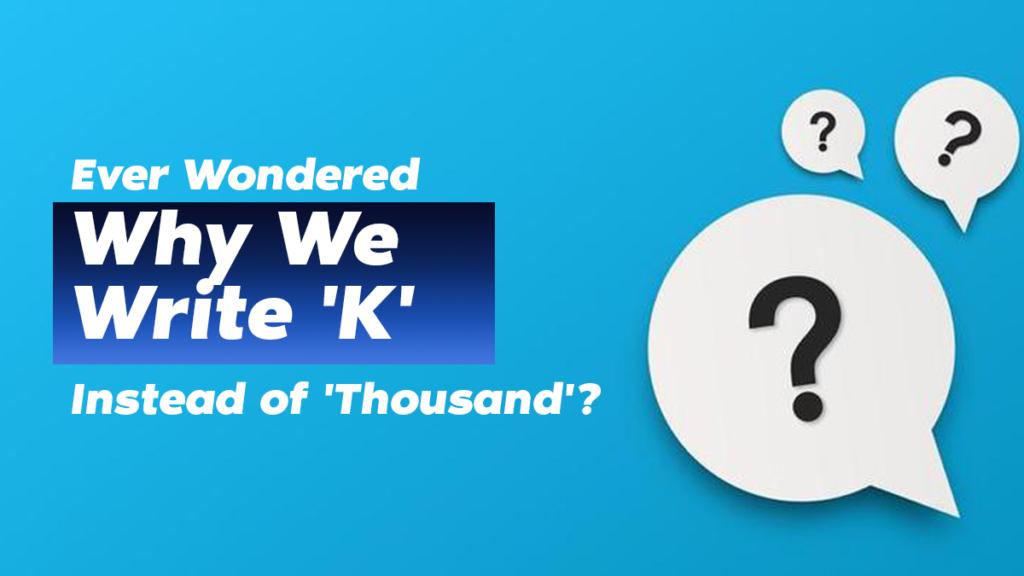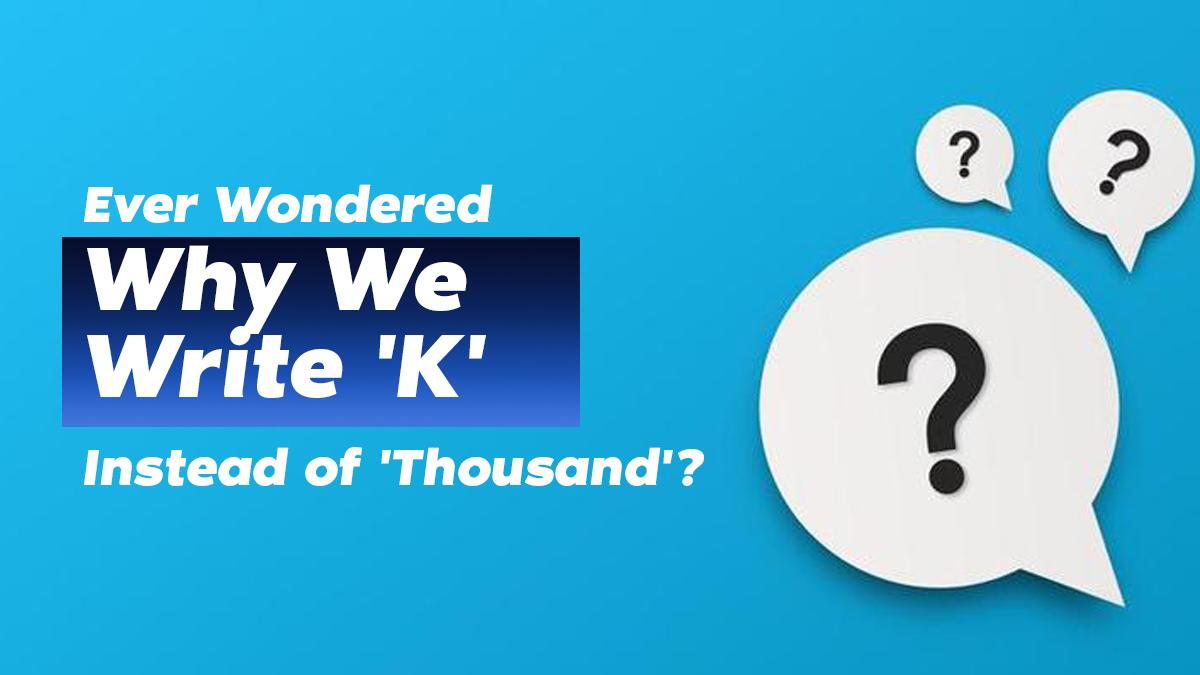You might think, “M stands for million, B stands for billion, H for hundred… so shouldn’t T represent thousand?” But instead, we use K. So, why is that? Let’s dive into the surprising reason!
Knowledge is endless, and sometimes the smallest details have the most fascinating stories. Even the simplest questions in general knowledge can stump us! This is especially true for competitive exams, where you often face questions that seem easy but have hidden twists.
So, back to our question: Why ‘K’ for Thousand?

It actually has roots in ancient languages and cultures! The Greek word “Chilioi” means “thousand.” Over time, the French adapted this word to “kilo,” which we see in “kilometers” and “kilograms.” Since 1 kilogram equals 1,000 grams, the letter K became the universal shorthand for a thousand.
To make things consistent:

- K stands for thousand,
- M for million,
- B for billion, and
- T for trillion.
In a way, ‘K’ is a nod to history, language, and science, all rolled into one letter!
So next time you see ‘K’ in numbers, remember – it’s a symbol with ancient roots, not just a convenient shorthand!




